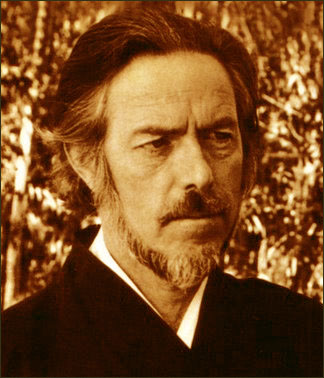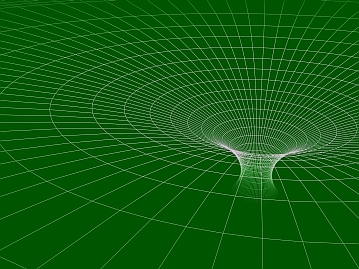So suppose that the Singularity happens…
 That’s what scientists, futurists, transhumanists, and entire conventions of science fiction writers have pondered over the years, especially since remarkable technologies have moved from science fiction to science fact.
That’s what scientists, futurists, transhumanists, and entire conventions of science fiction writers have pondered over the years, especially since remarkable technologies have moved from science fiction to science fact.
The camps are deeply divided on what happens after the Singularity.
For instance, the Singularity has its completely negative scenarios. Think of it as the Apocalypse without the cool cars that can traverse vast stretches of desert without a fill-up. But there are those who think the Singularity will be positive. Effusively positive even. The Singularity won’t be a game changer. It will be the ultimate reality changer creating the best of all possible situations for all of us. It will be a world of immortality, abundance, physical enhancements, and, if Hollywood is correct, really brightly lit, stoically-decorated rooms.
As is often the case, though, when our imaginations reach the precipice of our current knowledge, pessimism reigns. Suppose the Singularity happens. Suppose, even further, that the positive Singularity happens. What then? What if technology could provide every need and desire? Do we sit around plugged into our 3-D Wii consoles all day and - since sleep is no longer needed - all night?
In short: will we get bored?
I’m going to let a Western zen monk answer that. And he may even lead us to new speculations about not just what the Singularity is, but, possibly, what the Singularities (note the plural) are.
 Alan Watts, one of the West’s most celebrated experts on Zen Buddhism and panpsychism, wrote several groundbreaking works of philosophy, including The Book: On the Taboo Against Knowing Who You Are
Alan Watts, one of the West’s most celebrated experts on Zen Buddhism and panpsychism, wrote several groundbreaking works of philosophy, including The Book: On the Taboo Against Knowing Who You Are![]() . One of his lesser known - for which I’m hard pressed to explain - pieces is called, Cosmic Drama. In it, he lays out a very similar, although more spiritually-oriented, scenario as the technological one I described above.
. One of his lesser known - for which I’m hard pressed to explain - pieces is called, Cosmic Drama. In it, he lays out a very similar, although more spiritually-oriented, scenario as the technological one I described above.
Alan starts out like this:
“Suppose you’re God. Suppose you have all time, eternity, and all power at your disposal. What would you do? I believe you would say to yourself after awhile,
“Man, get lost.”
For Watts, when this absolute potential meets absolute power, the result is a creative explosion. All isn’t just possible, all is probable. No doubt, the more base desires are dealt with first.
“Naturally, you could dream any span of time - you could dream seventy-five years of time in one night, a hundred years of time in one night, a thousand years of time in one night - and it could be anything you wanted - because you make up your mind before you go to sleep,
‘Tonight I’m going to dream of so-and-so.’
Naturally, you would start out by fulfilling all your wishes. You would have all the pleasures you could imagine, the most marvelous meals, the most entrancing love affairs, the most romantic journeys, you could listen to music such as no mortal has heard, and see landscapes beyond your wildest dreams.”
Eventually, though, Watts speculates that you would get bored.
“And for several nights, oh, maybe for a whole month of nights, you would go on that way, having a wonderful time. But then, after a while, you would begin to think,
“Well, I’ve seen quite a bit, let’s spice it up, let’s have a little adventure.”
What would follow would be type-A-infused fantasies. You’d imagine wars and battles. You’d dream about dramatic rescues. You’d move from the Spice channel to the Adventure channel. Eventually to the Military Channel. And maybe to Lifetime, for more domestic drama.
The end result would be you would get lost in the drama. You would forget that you created the drama.
Watts suggests that this is precisely where our civilization is headed and technology is the driver.
Remember, he wrote this decades ago, but here’s how he sees it:
“Look at it another way. The object of our technology is to control the world, to have a super electronic push button universe, where we can get anything we want, fulfill any desires simply by pushing a button. You’re Aladdin with the lamp, you rub it, the jinni comes and says,
‘Salaam, I’m your humble servant, what do you wish? Anything you want.’
And after a while, just as in those dreams I described you would decide one day to forget that you were dreaming, you would say to the jinni of the lamp,
To me, at least, this sounds exactly like the Singularity.
While it’s impossible to rule out the idea that there are further levels of development above our pale human imaginations, Watts believes that, eventually, we would get tired of this technology.
“So if our technology were to succeed completely, and everything were to be under our control, we should eventually say,
‘We need a new button.’
With all these control buttons, we always have to have a button labeled SURPRISE, and just so it doesn’t become too dangerous, we’ll put a time limit on it - surprise for 15 minutes, for an hour, for a day, for a month, a year, a lifetime. Then, in the end, when the surprise circuit is finished, we’ll be back in control and we’ll all know where we are. And we’ll heave a sigh of relief, but, after a while, we’ll press the button labeled SURPRISE once more.”
Watts points out that the cycle matches exactly the Hindu belief of cosmic destruction and creation.
“During the manvantara when the world is manifested, Brahma is asleep, dreaming that he is all of us and everything that’s going on, and during the pralaya, which is his day, he’s awake, and knows himself, or itself (because it’s beyond sex), for who and what he/she/it is. And then, once again, presses the button—surprise!”
It’s a circular thing. Coming at it from a Western point of view, it’s a weird concept. We tend to think of time as being linear. There’s a creation and eventually an end of time judgment, or an apocalypse.
The Singularity may share more with the Hindu kalpas and yugas and less with the notion of a “rapture of the nerds” or a TechnoCalyps.
So, my question to you is this:
Suppose the Singularity is near? Is this just another touch of the cosmic “surprise” button?
How do you know the Singularity hasn’t happened again and again?
…
Man, get lost!
About the Author:
Matt Swayne is a blogger and science writer. He is particularly interested in quantum computing and the development of businesses around new technologies. He writes at Quantum Quant.












 Singularity Weblog is a journal of Nikola Danaylov's thoughts on trends, news, issues and people related to the
Singularity Weblog is a journal of Nikola Danaylov's thoughts on trends, news, issues and people related to the 
